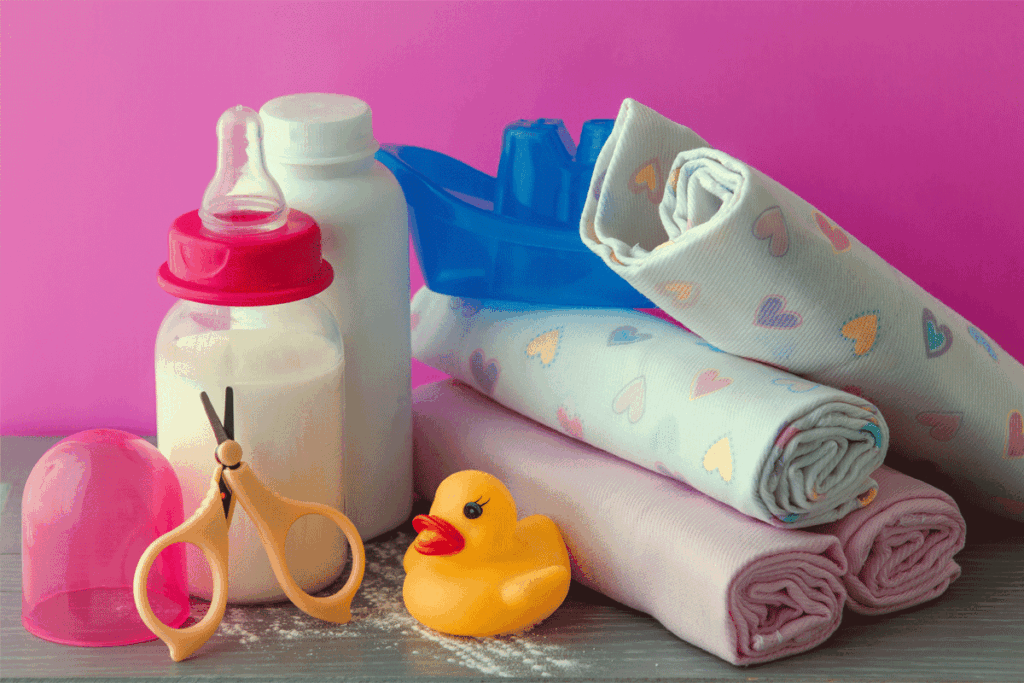Baby play
Definition
Baby play is a form of role play within BDSM in which one of the partners (often the sub) behaves like a baby or toddler, while the other partner takes on the role of the caring parent. The game is not primarily about sexuality, but about security, control, or surrender.

Explanation of baby play
Baby play – also known as infantilism or adult baby – is a form of role play in which an adult temporarily immerses themselves in a baby state. This can range from a playful moment with a bib and pacifier to long-term “lifestyle” experiences in which someone wears diapers, sleeps in a crib, and is completely dependent on a “caregiver.”
Incomprehensible or perhaps even confusing to the outside world, but often comforting, intimate, and safe for those involved. Within BDSM, baby play is usually used as part of a broader dynamic of power, care, and surrender. The ‘baby’ – often a submissive – surrenders his or her autonomy and becomes dependent on the Dominant, who takes on the parental role in this play. This can be both loving and strict: think of feeding, comforting, maintaining sleep rituals, or correcting the ‘baby’ when he or she exhibits difficult behavior.
In many cases, sexuality does not play a direct role – it is more about the psychological aspect of surrender, dependence, and innocence.
Escaping reality for a moment
There are various motivations for baby play. Some people find it relaxing to not have to be an adult for a while. Others use this form of surrender to process old attachment needs or traumas. Baby play can also be experienced as erotic, for example in combination with diaper fetishism, discipline, or humiliation. The interpretation is always personal and diverse.
It can feel uncomfortable to outsiders, especially when baby attributes such as pacifiers, children’s clothing, or bottles are used. That is why it is important to communicate clearly about intentions and boundaries, especially if baby play is part of a broader BDSM or D/s relationship. Consent, safety, and clarity are essential, as with any form of play.
What makes baby play special is that it often touches deep emotional layers. It allows for surrender, healing, playfulness, and control – in a carefully constructed and coordinated setting. The Dominant acts as a safe haven and guardian of boundaries, while the sub is allowed to feel literally small and vulnerable.
Safety & points of attention
Baby play may seem innocent, but it can actually be deeply emotional. Someone who puts themselves in such a vulnerable position needs protection not only from physical risks, but also from mental overload, abuse of power, or disrupted attachment dynamics. Below are a number of important points to consider:
Agree on clear boundaries in advance
Not everyone who enjoys baby play wants to be touched or sexually approached during play. Therefore, always discuss everyone’s comfort zone in advance. Does someone want to remain in their “baby headspace,” even when, for example, a diaper needs to be changed? Or do they want to add erotic elements to the play? Only clear agreements ensure a safe experience.
Be aware of regression and emotional impact
For some participants, baby play is more than a fantasy – it is a way to release tension or touch old wounds. This can be healing, but also overwhelming.
Provide good aftercare
After intense regression play, someone may feel empty, confused, or even ashamed. A loving debrief, hug, or resuming adult roles can help them come back down to earth. Don’t just leave your sub in a baby outfit or with unspoken feelings.
Related terms baby play
AB
ABDL
Adult baby
Age play
Diaper lover
DL
Infantilism
MDLB
Paraphilic infantilism
Role play
More information

